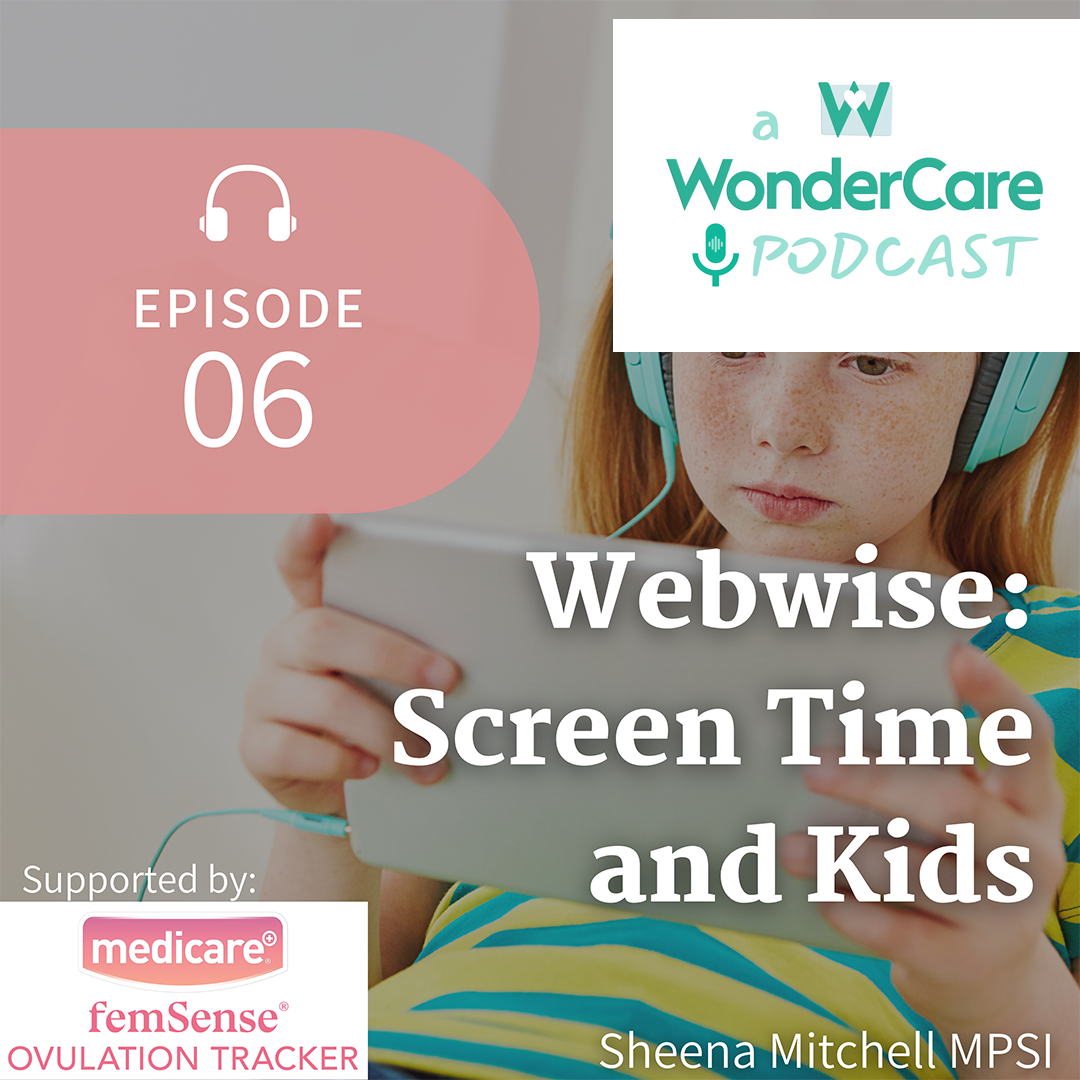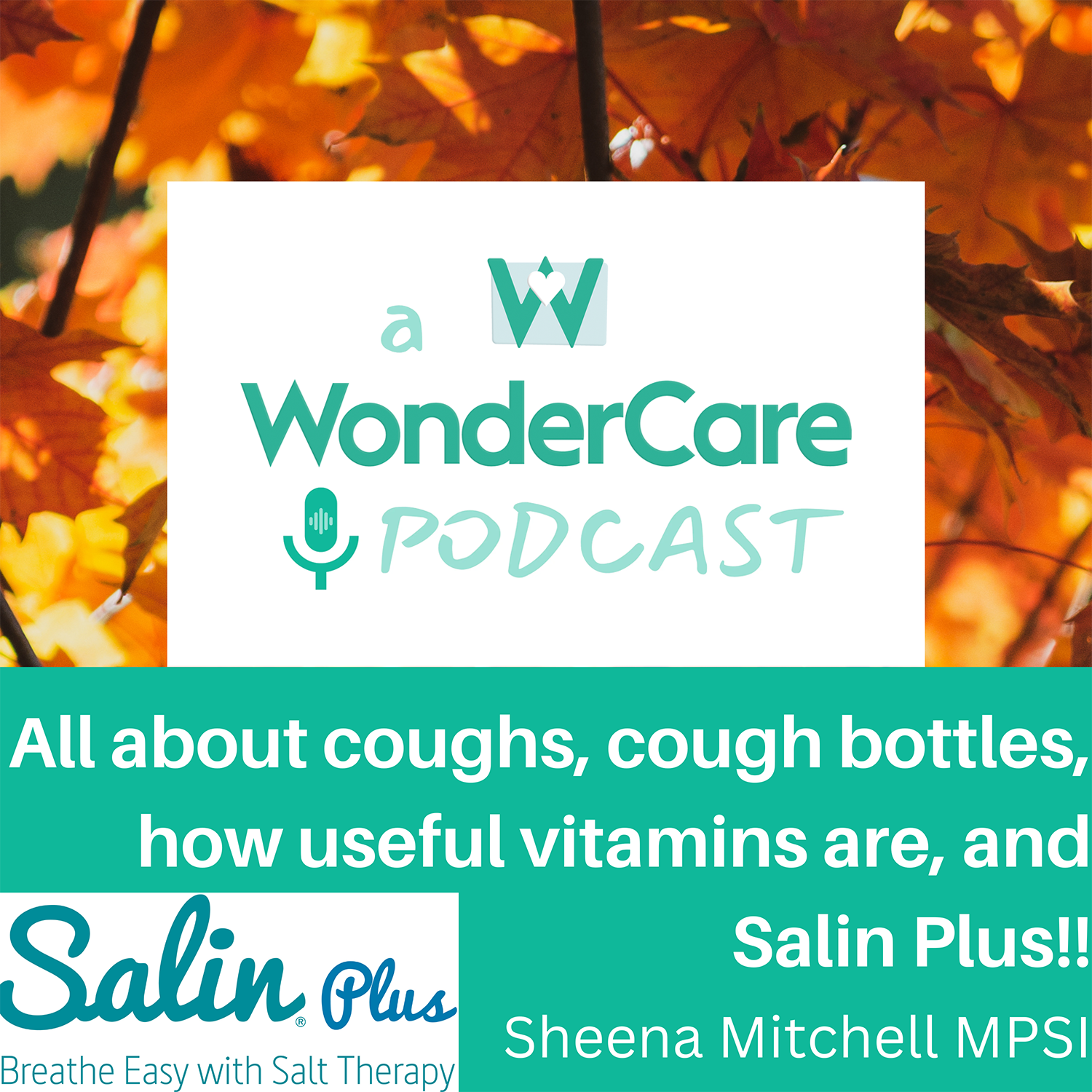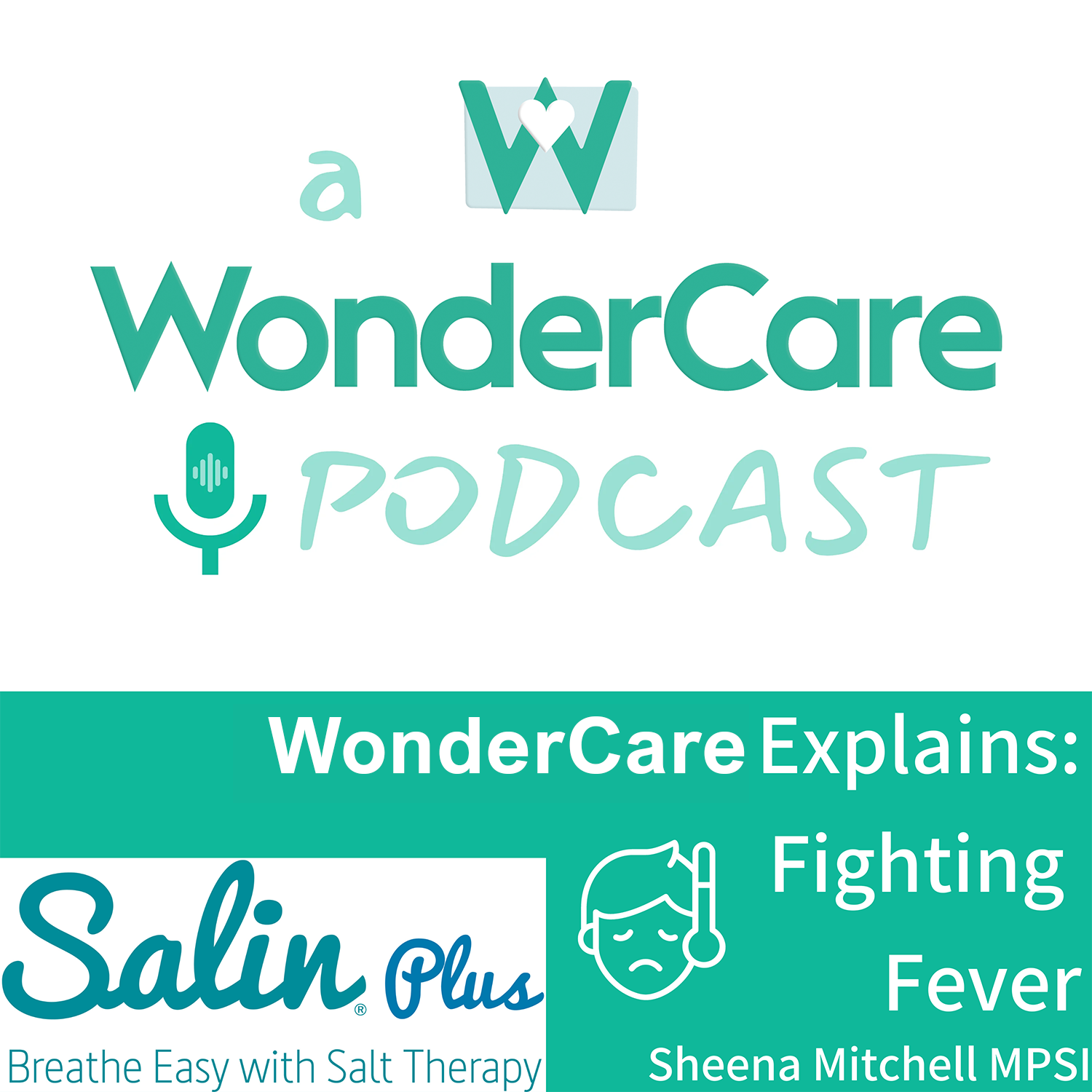Episode Transcript
Speaker 1 00:00:09 Hello, and welcome to the wonder Baba podcast. My name is Sheena Mitchell. I'm a pharmacist and mom of three. I'm here to chat all about child and family health. If you enjoy listening to a wonder rapid podcast, I'd be really grateful. If you could follow or subscribe and leave a review, it really helps to support the show. Thank you today. I am going to be talking about travel sickness and travel sickness. Of course can happen in cars or on boats or on planes. I also want to talk just a little bit about, uh, flying with kids and the sore ears that they can get on takeoff or landing. It can affect the grownups too, and the old traditional way of having your child. So kind of hard. Sweet is great, but there is actually something that might be a lot more effective and suitable for kids from one year old.
Speaker 1 00:01:05 So I'll start with the travel sickness because there is nothing worse than hopping into the car. And within the first 10 minutes hearing, no, I feel sick. I can't go. We have to stop or worse than that. Having to stop the car, pull over and clean your child. Who's been sick either way, listening to <laugh> the complaining about the travel sickness and actually dealing with the travel sickness and just for your child experiencing the travel sickness. It's just a nightmare and it can really, really limit you because you know, you don't wanna do that to your child or yourself and you can decide, okay, do you know what I'm actually just, I won't go. We'll just stay here this weekend or whatever. And I suppose I just wanted to give a few tips on what ways you can actually help, which will hopefully make everyone more comfortable in the car and make those long journeys seem less daunting. So with travel sickness, obviously you get a lot of horrible symptoms. So you get things like dizziness, headaches, obviously nausea and vomiting. When it starts off and people are starting to feel a little bit sick. They generally tend to go a bit pale and you'll notice the children start to produce more saliva and need to swallow more often. So actually that's quite a good way of spotting. If you have a problem
Speaker 1 00:02:35 That you need to maybe deal with in the car. So if you notice your child starts swallowing a lot more and is looking a bit off, then definitely be prepared that travel sickness may well be kicking in your child also might become a little bit tired and irritable or drowsy, and they might start to breathe a little more quickly. So if you notice your child is kind of panting a little bit or taking quicker breaths, these are other early signs that a young child is not feeling well. So there's lots of people, unfortunately, who are more likely to suffer from motion sickness. Some of those people include people who suffer from migraines and those who suffer from heavy periods. But for the wonder rabbi podcast, there's a couple of groups which are of particular interest. Obviously the first are children between the ages of three and 12 years of age, because usually travel sickness starts to kick in from two or three onwards.
Speaker 1 00:03:33 And thankfully, a lot of kids grow out of it. By the time they turn 12, the other group of people who can be affected are pregnant women. So if you're pregnant and you've never suffered with travel sickness or you did as a child, but it hasn't bothered you, it is something that can kick back in during pregnancy. It's worth saying that, of course, as your body gets used to the change in environment and the change in motion, it can adjust. And sometimes after a few hours into a journey, the sickness can calm down and go away and doesn't need treatment. So obviously that's great to know, but you know, you could have had two fairly torture hours before that actually happens. So there are some ways that you can help to prepare your child for a journey. I'm gonna start with the medical and then I'll just give you some practical hints and tips.
Speaker 1 00:04:21 Okay? So in terms of medication there isn't, unfortunately, anything you can give your child before they turn five for motion sickness. So as I said, I'll be touching off some tips to help reduce it afterwards. And these will all be very helpful, hopefully for kids younger than five. But if you have a child aged from five to 12 years or indeed an adult or child over 12 St Juran might be a good option. So St Juran is an anti nausea medication and it's used to prevent travel and motion sickness. The ingredient in it is an old style antihistamine called sine. So it just helps to reduce that feeling of sickness for children, age five to 12, they take a tablet two hours before traveling. So you do need to be prepared and be ready. You do need to take two hours before you actually sit into the car and then half a tablet, every eight hours during the journey.
Speaker 1 00:05:17 So if you're on a long haul flight, or if you're on a boat journey, just remember that after eight hours, you're gonna have to give another half tablet for adults or children over 12. You're taking two of these two hours before traveling and then one tablet, every eight hours during the journey. The one thing about St drawn is like every medicine, they can have side effects and sometimes they don't affect everyone, but they can make you a little bit drowsy. So just to bear that in mind, unfortunately, stran isn't really recommended during pregnancy. Something like ginger is quite useful. So if you can let a little bit of ginger soak in some warm water, fresh ginger is ideal and let it soak in some warm water and, and drink it as a tea. I know a lot of people who soak it from the night before, so that you have, I suppose, an optimum amount of ginger that ginger can actually really help to settle your tummy.
Speaker 1 00:06:13 And that is safe during pregnancy. I know at one stage I tried to give ginger tea to my kids and, um, no, they didn't like it, but maybe your children will. So ginger is definitely worth the shout. The next type of medication I want to talk about are quells tablets. So these are really handy because they are really fast at working. So unlike the Stu drawn, which you have to take two hours before a journey, these, you can take half an hour before traveling or when sickness kicks in. So if you're not sure if your child is gonna suffer with travel sickness, you can actually just give this if they need it. This medication is only suitable for children over 10 years, the active ingredient in it is high seen hydrobromide. It temporarily reduces the effect of the movement on your balance organs, in your inner ear and the nerves that are responsible for a nausea they're handy because they melt in the mouth.
Speaker 1 00:07:08 That's really why they are absorbed so quickly. They can be sucked chewed or swallowed hole with water. So for a child over 10, you can give half or one tablet, every six hours as needed. The one thing I'd say is make sure not to give it more than three times in 24 hours. Again, this can cause a little bit of drowsiness. So if there's any adults taking it, just to be careful not to drive or operate machinery or drink alcohol, cuz it just might make you feel a bit sick again, not really one for pregnancy. So stick with the, the natural options. So that's the two main medications which are useful for travel sickness. A great drug free option is C bands. So these are suitable for children between the ages of three and 12. And they're also suitable for adults, for nausea associated with pregnancy.
Speaker 1 00:07:59 So quite handy, they are basically a soft knitted, elasticated wristband, and they work by applying pressure to the NA one acupressure point on each wrist. Scientifically these are unsupported by conventional evidence, but from personal experience with my own children and from years of feedback from parents going way back, as far as when I was a young child, I know my brother used to wear them. They do work really well. So whilst I'm not saying they'll definitely do the trick, they are a great way to naturally try and help your child. They don't cause any side effects, which is really good. You just pop one wristband on each wrist. Whenever your child feels nauseous, it is important where you position them on your child's wrist. So you're basically using your child's fingers to measure the position. So, so the three middle fingers, um, are placed on the inside of their wrist with the third one kind of lined up with the edge of the wrist crease.
Speaker 1 00:09:04 And the NA one point is just under the edge then of the index finger. Yeah, it's quite clear on the pack. You definitely have to wear two for them to be effective. I know my children sometimes forget them and then try and fight over <laugh> one pair and end up wearing one wristband each, not sure if it's doing anything for them, but look even that, I think that makes them feel better that, you know, you're being proactive in trying to give them a solution. So other than the treatment for travel sickness, there are lots of tips that you can do to help prevent it from flaring up and to make journeys much easier. <laugh>
Speaker 1 00:09:41 Definitely try and get your child to sit still. Obviously this is easy in a car because they're in their car seats and the good old five point harness, you know, makes that, um, makes that possible for you. But if they're on a plane or a boat, try and get kids to sit in one spot and to look at something ahead of them in the distance like the horizon, it can be helpful to use a cushion to support your child's head so that it's staying in one place to tell your child not to read in the car or play any games that involve looking at them because that can actually make it worse instead of reading or playing on an iPad or anything like that. Get them to listen to audio books or podcasts, or do you know something engaging, even if it's music, because this can be a really good distraction for them, but it also means that they can keep their head still and keep their eyes, you know, on the horizon ahead.
Speaker 1 00:10:36 Another thing you can do, if you don't have an audio book with you is to try and entertain your child with games like ice spy, actually in our eyes, we had to use the kids are a bit older now, so they know their letters, but originally we used to play the Icey color game because something starting with the letter S was a little bit tricky for those of us who couldn't spell. So the ice wide color game, we just used to say ice, buy something, the color green. And it just meant that that game was really good for the younger kids. As well as the older ones, <laugh> ensure the car doesn't get too warm or stuffy, open a window. If your child's feeling nauseous and the car is warm, it can just help cool them down. And if you're on a plane, make sure that the air conditioning above your head is kind of pointing down at your child.
Speaker 1 00:11:26 If you're on a boat and your child starts to feel very nauseous. If you're able to get out to the deck, the fresh air can help, but again, remember make sure they're not moving around too much. So if you go up to the deck, try and find a spot to sit and look out the horizon before a journey, I recommend just giving small frequent meals rather than one big meal. This can just really help because it means you don't have a large meal sitting in your child's stomach before a car journey do definitely keep your child well hydrated because dehydration can make nausea, feel a whole lot worse and try and get your child to practice some deep breathing. It can really help them to stick calm if they're feeling really sick and might just get them through a wave of nausea for younger kids, even asking them to pretend that they're blowing out candles on a birthday cake can be a nice, subtle way to get them engaging with deep breathing.
Speaker 1 00:12:19 Finally, on the travel sickness, this is a bit of pessimistic solution, but just to be sure to have sick bags and a fresh pair of clothes with you, there is absolutely nothing worse than getting caught off guard. Ugh. Yeah. Horrendous, horrendous, not fun. Just like with toilet training a child and going on a long journey, it's a bit of a game of roulette. So yeah. Be as prepared as you can. Right? So just the other thing that I wanted to pop into this episode, cuz I think is fits in quite nicely. Do you know when you're flying and even as an adult, I still hate this. The problem that you have with ear pressure when you are taking off or landing, particularly landing, I mean I've been on holidays where I've spent three days, not able to really hear much outta one ear spent the time shouting at people going, what what's she saying?
Speaker 1 00:13:14 <laugh> so obviously for children, they can panic over that sensation. And they also, you know, when they're actually popping, it can be quite painful and they really don't understand, especially young kids, they just don't understand what's going on. And the only communication you will get about it is lots and lots of tears. So if your child seems to struggle a lot with air pressure on a plane, I would recommend using a product called airplanes. So these are basically ear plugs and they relieve discomfort when you're flying, they're made of latex free silicone and they're a great drug free option. You get a pair and a pack and they can be used from children one to 11 years of age. Not only do they help equalize the air pressure, they also help to block out some of the overpowering noise that the engines make. So if your child, you know, hasn't flown before and is a little bit intimidated by the loud sounds of the engine, these are quite useful.
Speaker 1 00:14:12 They don't completely block out noise so they can still obviously hear emergency announcements and whatnot. But just some of the, the scary sounds are reduced. You basically pop them in the ears. There's good instructions with the pack. You basically pinch your nose and blow, and then you just insert them into the ear and turn them like a little quirk screw until they kind of fit in. Well, you usually pop them in either just before you take off or an hour before landing, when you are flying and you're at maximum altitude, you can actually take them out and then just pop them in again an hour before landing. So it's quite handy. So yeah, they're a really good solution for that sore ear pain, which can cause an awful lot of upset when you're taking off and landing. Hopefully this episode has helped to give you some tips and some ways to help alleviate travel sickness and ear pain on flights.
Speaker 1 00:15:09 Travel sickness should never really be a reason that you don't go somewhere, but obviously left untreated or by not preparing properly for a journey. It absolutely can be. And of course the last thing you want is for your child to suffer. So it's worth being proactive and knowing what solutions are available for you and your child. All of the products that I discussed today are available on my website, wonderbar.ie. I will pop the links in the show notes and also on my social media. If you found this episode helpful, I would be so grateful. If you could give a little follow or review on Spotify or apple podcast, anywhere at all, it really helps to support the show and helps me to keep going. Yeah, a little like, or a little review would be fantastic. Thank you so much and safe traveling.


